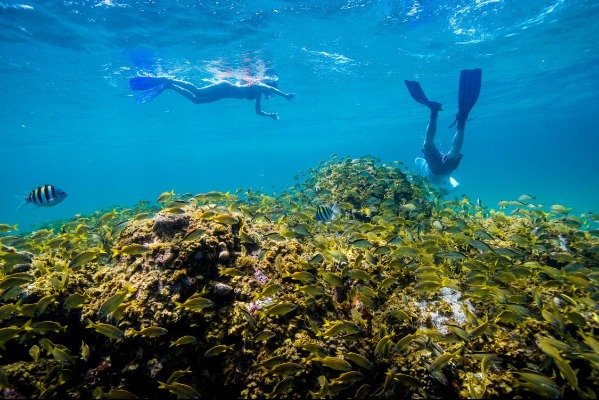CTO Secretary General Celebrates World Tourism Day

The secretary general of the Caribbean Tourism Organization, Neil Walters offered a message to the industry on World Tourism Day, stating that:
“In observance of the day, the CTO and approximately a dozen regional and international partners are collaborating on a virtual event aimed at highlighting and addressing the challenges we face in forging a sustainable tourism sector and identifying the opportunities to build a more socially inclusive, sustainable and smart sector.”
Walters writes:
“It’s a clear sign of the importance we all place on collaboration and inclusion, a key plank of the United Nations (UN) Sustainable Development Goal (SDG) #17, ‘Partnerships for Goals’ which emphasizes inclusive partnerships at the global, regional, national and local levels and shared goals placing people and the planet at the centre of development.”
The CTO’s secretary general observes that:
“World Tourism Day is also being celebrated at a time when the region’s tourism sector is beginning to emerge from the prolonged impact of COVID-19. Some of our member countries have reported record stayover arrivals during the months of July and August, while others show their arrival numbers trending in the right direction and even approaching 2019 levels. We still have to be aware of the challenges and potential hurdles as we move to a recovery mindset, but these are encouraging signs that the hard work our member countries have put into adapting to the changing environment of the pandemic, is beginning to pay dividends. Our progress amidst the challenges gives hope to the millions of Caribbean nationals who depend on tourism for a living, either directly or indirectly.”
However, he says that:
“In celebrating our incremental successes, this year’s theme is a reminder that, even as arrival numbers rise and tourism revenue increases, we begin to revise our measures of success to include an analysis of the social and economic benefits of the sector. The new tourism approach must ensure that our local communities participate in the renewed tourism economy. Similarly, additional focus must be placed on vulnerable groups, including women, the youth, the disabled and indigenous and marginalized communities, to ensure that they are meaningfully included in the tourism economy.”
Walters points out that:
“In its latest Caribbean Quarterly bulletin, the Inter-American Development Bank stated that in 2020, nine of the twelve Caribbean countries it reviewed suffered double-digit shock to real gross domestic product from the pandemic and drew a correlation between these results and the Tourism Dependency Index. These nine countries are in the top 20 most tourism dependent countries globally.
And he continues:
“As we look towards the future, sustainable tourism used as a development tool, at the forefront of the region’s economic recovery, can help to strengthen other sectors against the effects of future shocks. Sustainable tourism is already recognized as a contributor directly or indirectly to most of the UN sustainable development goals, including gender equality, decent work and economic growth.”
Walters notes that:
“The CTO has recognized that to achieve these goals, it’s imperative that we forge alliances and partnerships with organizations and institutions that play a meaningful role in contributing to the social and economic development of the region. One such example is our collaboration with the Compete Caribbean Partnership Facility (CCPF) which is funding community-based tourism pilot projects using the cluster approach in rural and indigenous areas in three Caribbean countries.”
And Walters concludes:
“By providing opportunities such as these to vulnerable groups, we enhance the capacity of Caribbean people to play a leading role in their own development. We also demonstrate that in addition to being a primary economic revenue earner for the Caribbean, tourism can be inclusive and by extension promote growth in all of our communities.”


